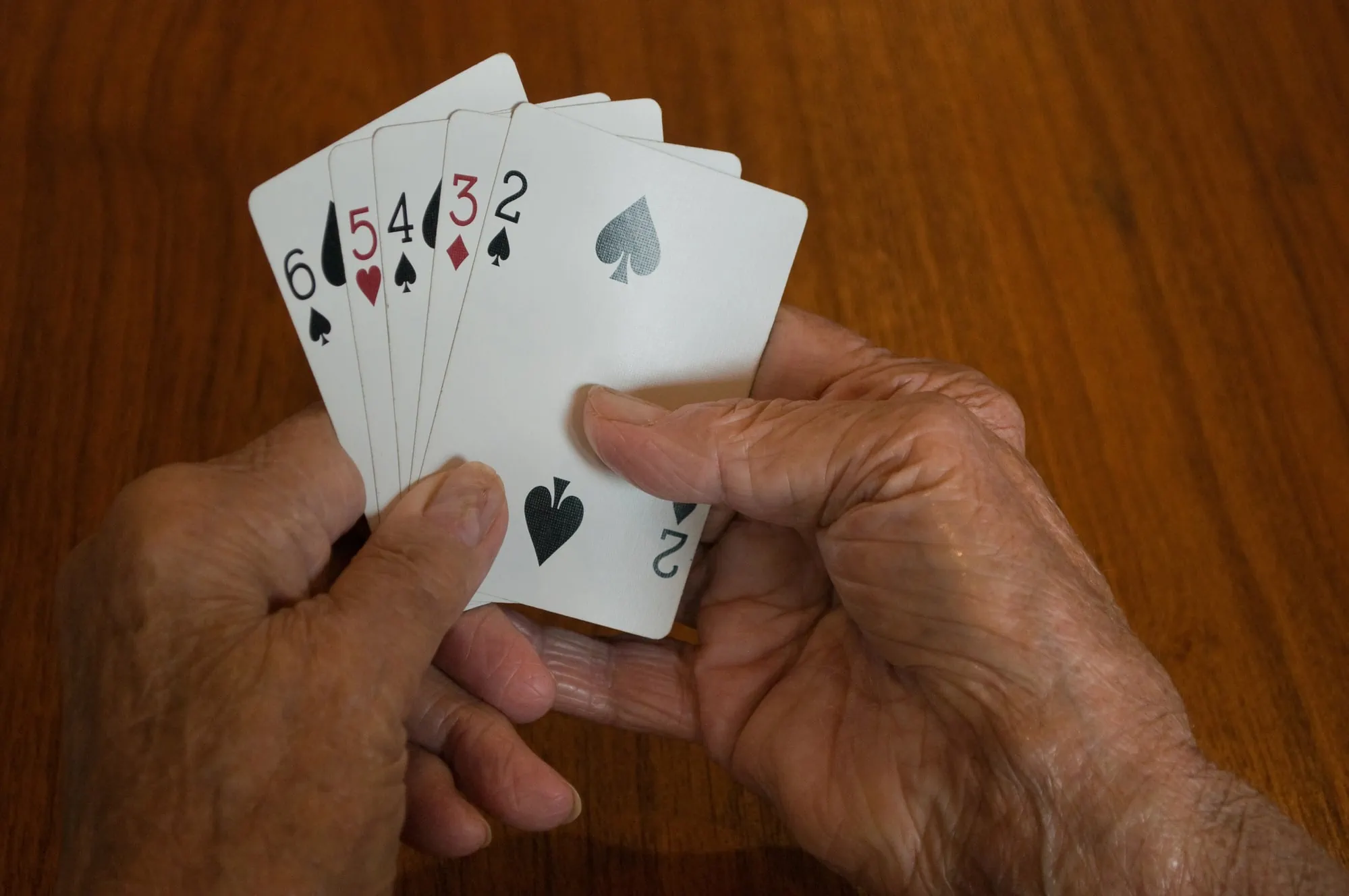
Understanding Seniors and Gambling Addiction
Gambling addiction among seniors is a complex issue with far-reaching consequences. Many people gamble when on vacation or buy a scratch-off lottery ticket now and then, and this is true among seniors as well. However, up to 8% of seniors have a gambling problem, according to AARP. And while most older adults aren’t running off to gamble in Las Vegas, they can get their rush from local Bingo halls or sports betting venues, which have become more accepted across the US.
However, gambling addiction is dangerous, especially for older people who are isolated with a source of income. Understanding this addiction is critical, including its causes, effects, and the role of modern technology in exacerbating the problem.
What Drives Seniors to Gamble?
Several factors contribute to seniors' engagement in betting activities. For some, it's a form of socialization and entertainment, providing an escape from loneliness or boredom. Others may perceive it as a way to supplement their income or alleviate financial worries, especially in retirement.
The Nature of Addiction
Gambling addiction knows no age limit, and seniors are equally susceptible. What begins as recreational games or betting can quickly spiral into compulsive behavior, characterized by an inability to control impulses despite adverse consequences. Seniors may find themselves chasing losses, experiencing emotional withdrawal symptoms when unable to gamble, and neglecting other aspects of their lives.
10 Symptoms of Gambling Problems Among Older People
Problem gambling, like any addiction or compulsive behavior, can cause dramatic changes in behavior and personality. People who love a compulsive gambler may be confused, scared, or angry when they don’t understand what’s happening. There are, however, symptoms that provide clues.
- Preoccupation with Bets: Older people, particularly those who are retired, may find themselves fixating on betting activities to fill their newfound free time. With fewer obligations and potentially limited social interactions, it can become a primary source of entertainment and stimulation.
- Increased Frequency and Amount of Bets: With ample time, older people may gamble more often and with larger sums of money. This may be driven by a desire to recapture the excitement and thrill associated with their younger years or to alleviate feelings of boredom and monotony.
- Inability to Control Gambling: Despite recognizing the negative consequences of their betting habits, older people may struggle to exert control over their impulses. The absence of daily routines and responsibilities and feelings of isolation can make it challenging for them to resist the urge to gamble.
- Restlessness or Irritability when Attempting to Stop: Older people grappling with loneliness and feelings of isolation may experience heightened restlessness or irritability when attempting to curb their habits. Gambling can serve as an unhealthy coping mechanism to alleviate these negative emotions, making it difficult for them to abstain.
- Chasing Losses: The desire to recoup losses and regain a sense of financial security can drive older people to engage in compulsive behaviors. Pursuing lost funds may become increasingly desperate, leading to further hardship and emotional distress.
- Lying About Gambling: Older people may resort to dishonesty about their betting to avoid judgment or intervention from loved ones. Feelings of shame and embarrassment may compel them to hide their gambling habits, further exacerbating their isolation.
- Neglecting Responsibilities: With fewer external obligations, older people may prioritize gambling over other essential responsibilities, such as maintaining their home, managing finances, or attending to health needs. This neglect can harm their overall well-being and quality of life.
- Borrowing or Stealing Money: Financial strain from gambling losses may drive older people to borrow money from friends, family, or financial institutions. Some people may even resort to stealing or other illegal activities to fund (or hide) their gambling habits.
- Financial Problems: The economic repercussions of addiction can be particularly devastating for older people, who may be living on fixed incomes or relying on retirement savings. Accumulated debts, bankruptcy, and the loss of assets can significantly impact their finances.
- Relationship Issues: aAdiction can strain relationships with family members, friends, and caregivers, particularly for older people who may rely heavily on these support networks for companionship and assistance. Withdrawal from social interactions and conflicts arising from financial issues can erode trust and strain familial bonds.
- Withdrawal Symptoms: When they can’t gamble, they may experience symptoms such as restlessness, anxiety, or depression. These symptoms can be exacerbated by feelings of loneliness and isolation, further reinforcing the cycle of compulsive behavior.
- Using Gambling as an Escape: For older people facing physical limitations, health concerns, or the loss of loved ones, gambling may serve as a means of escaping reality and coping with distressing emotions. The temporary distraction provided by gambling can offer a respite from loneliness and existential concerns, albeit at a significant cost to their well-being.
These manifestations underscore the unique challenges faced by older people grappling with gambling addiction and highlight the importance of tailored interventions and support services to address their needs effectively.
The Impact of Gambling Addiction
The repercussions of seniors' gambling addiction are profound and multifaceted. Financial strain is common, leading to depleted savings, mounting debts, and even bankruptcy. Additionally, strained relationships with family and friends may arise due to lies, deceit, and neglect stemming from their preoccupation with gambling.
The proliferation of gambling apps and easy access to online platforms via cell phones have intensified the issue among seniors. With just a few taps on a screen, seniors can access a wide array of gambling options, making gambling more convenient and tempting than ever before. The anonymity and lack of physical barriers further contribute to their compulsive behavior.
Seniors' gambling addiction is a pressing issue that demands attention and action.
By understanding the underlying factors driving their behavior, acknowledging the impact of modern technology, and providing appropriate support and treatment, we can mitigate the detrimental effects of gambling addiction among seniors and help them lead fulfilling lives free from compulsive behavior.
Consider Present Moments Senior Living
At Present Moments Senior Living, we strive to create a nurturing environment where your loved ones can thrive. Our program provides a positive and safe space for seniors to embrace each moment with joy and fulfillment.
We understand the importance of maintaining mental and physical well-being in retirement, which is why we offer a variety of amenities and services tailored to support their needs. From engaging activities to compassionate assistance, our dedicated team ensures every resident experiences the highest quality of life possible.
Get in touch to learn more about our programs today!

